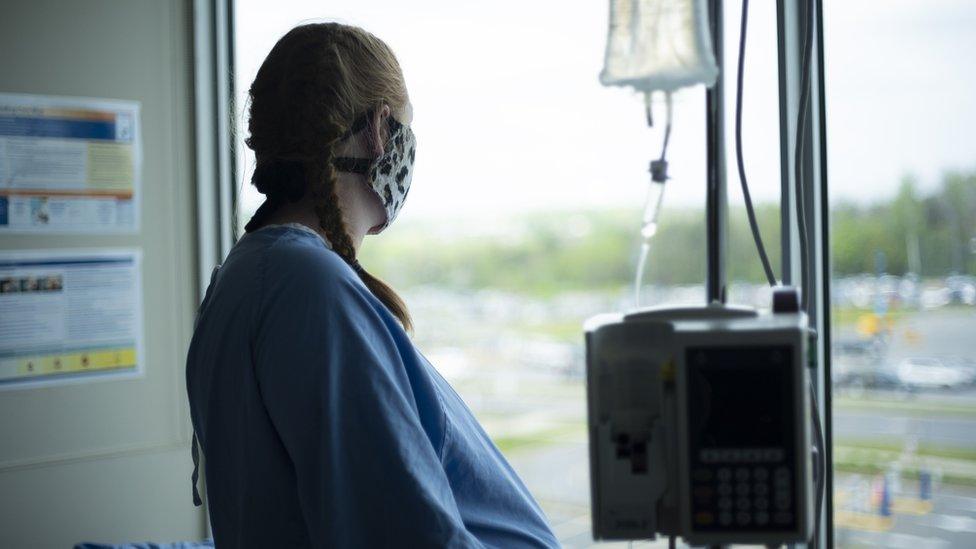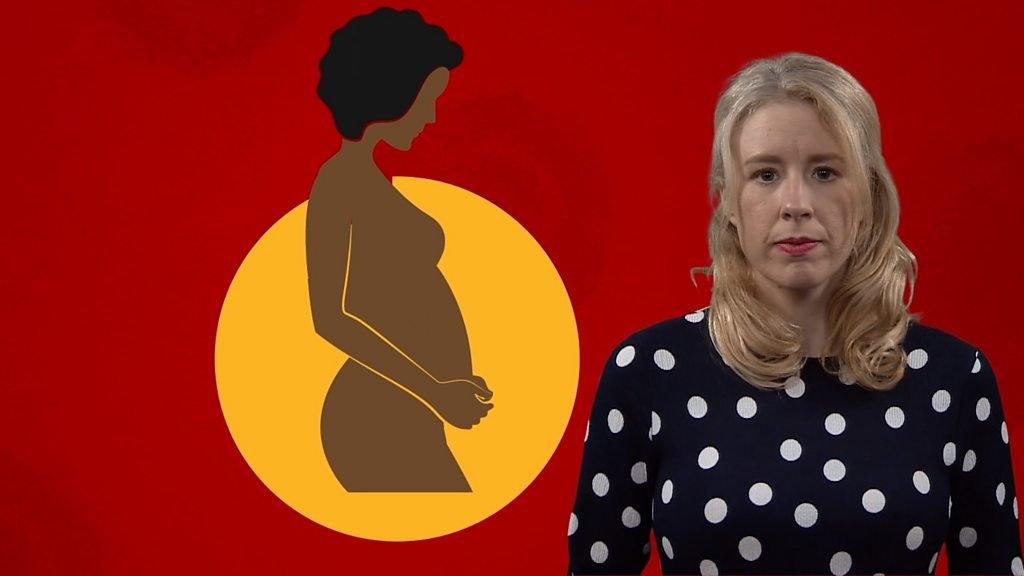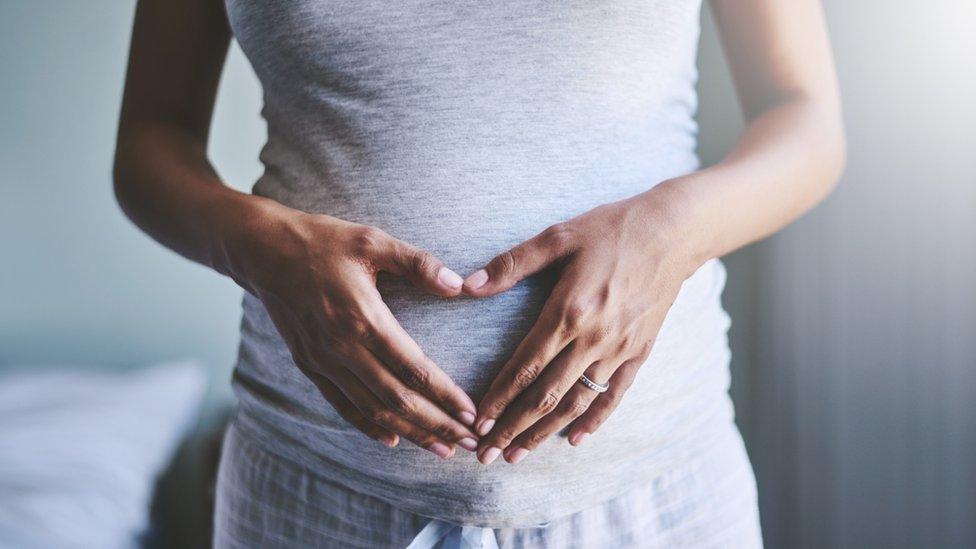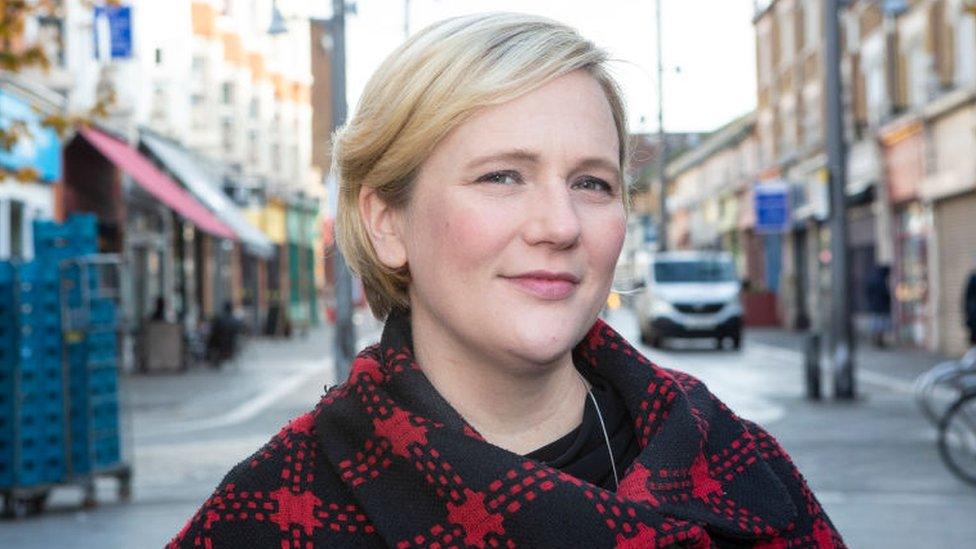Covid: Stillbirth and prematurity risks may be higher in pregnancy
- Published

A large UK study suggests having coronavirus around the time of birth may increase the chance of stillbirths and premature births - although the overall risks remain low.
Scientists say while most pregnancies are not affected, their findings should encourage pregnant women to have jabs as soon as they are eligible.
The majority are offered vaccines when they are rolled out to their age group.
The study appears in the American Journal of Obstetrics and Gynecology, external.
The research, led by the National Maternity and Perinatal Audit, looked at data involving more than 340,000 women who gave birth in England between the end of May 2020 and January 2021.
Why it's recommended you get the Covid vaccine if you're pregnant
All women were tested for the virus when they were admitted for births - whether they had symptoms or not.
The study found:
3,527 had positive tests
Of those, 30 had stillbirths (deaths occurring after 24 weeks of pregnancy)
Scientists calculate 8.5 per 1,000 women who had a positive test went on to experience a stillbirth
This compares to 3.4 per 1,000 women who had a negative test
12% of women who had a positive coronavirus test gave birth prematurely (before 37 weeks)
This compares to 5.8% of women who had negative tests
It was more common for women who had Covid-19 at the time of birth to be younger and from a black, Asian or other minority ethnic background
Researchers say a higher risk of stillbirth and prematurity, as well as a greater chance of having a Caesarean section, remained even once factors such as the mother's age, ethnicity, socio-economic background and common health conditions were taken into account.
Babies born to women who tested positive were more likely to need special neonatal intensive care because they were born early and needed more support - rather than being infected with coronavirus itself.
Professor Asma Khalil, co-author of the paper, said it was important for women and healthcare workers to be aware of the potential risks.
She added: "This study is the largest yet in England to describe the pregnancy outcomes in pregnant women who had tested positive for Covid-19 around the time of birth.
"While it is reassuring that the overall increases in the rate of stillbirth and pre-term birth remain low, this study does show that the risk of stillbirth or premature birth may be increased in women who have the infection around the time of birth.
"This highlights the importance of Covid-19 vaccination for pregnant women; it reduces the risk not just to themselves, but also to their babies."
Dr Mary Ross-Davie, from the Royal College of Midwives, agreed that vaccination was key in protecting people from the virus.
She added: "While the increased risk of a stillbirth or pre-term birth remains low when women have Covid-19 in pregnancy, the important message here is that pregnant women, like all of us, should continue to take precautions to reduce their chances of exposure to the virus.
"This includes continuing social distancing, hand-washing and mask-wearing," she said.
- Published7 May 2021

- Published16 April 2021

- Published7 May 2021

- Published26 January 2021
